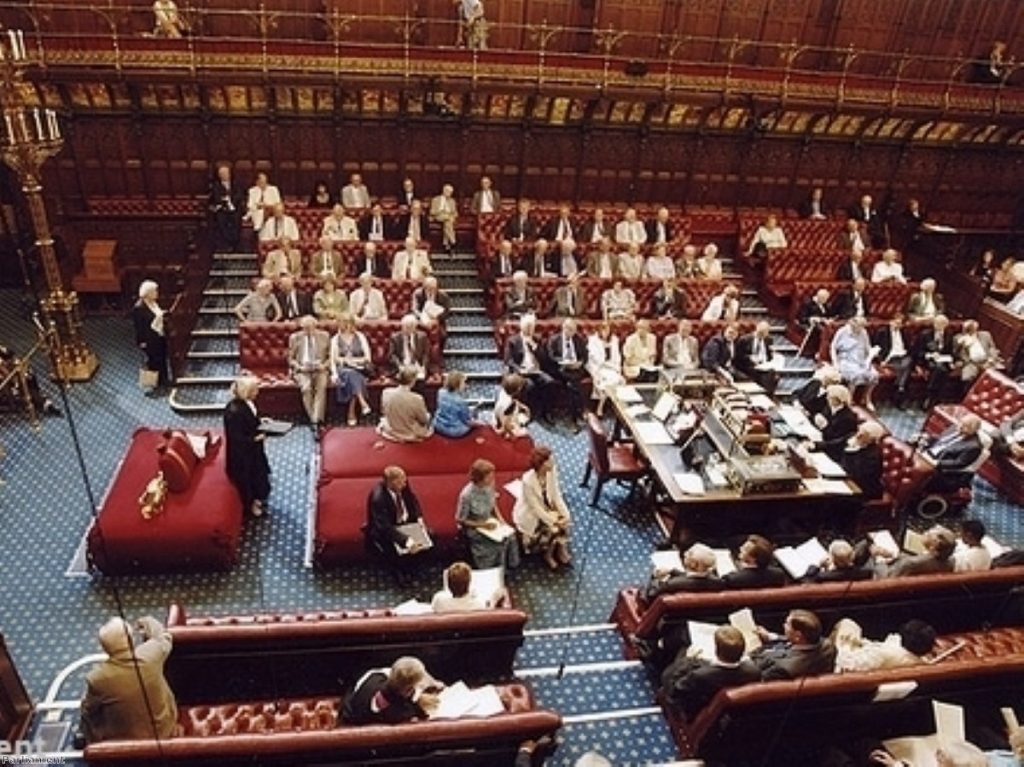Labour bid to derail AV vote fails
Labour’s bid to prevent the coalition government from holding a referendum on the alternative vote system next May has been defeated in the Lords.
Peers voted by 224 votes to 210 to reject Charles Falconer’s motion, meaning ministers will be able to hold the electoral reform vote on the same day as local elections, May 5th 2011, without abandoning the parliamentary voting system and constituency bill.
The legislation proposes reducing the number of seats from 650 to 600 MPs, resulting in a redrawing of constituency boundaries, in addition to providing the legal framework for the electoral reform referendum.


Former lord chancellor Charles Falconer had argued the illogical singling out of two current constituencies, Orkney and Shetland and the Western Isles, means the bill affects “private or local interests of persons or bodies of the same class” in a different way to others.
He argued the ‘hybrid’ nature of the bill means it should have been referred to a House of Lords committee where appeals can be lodged against it.
This means the bill could have missed a deadline set by Electoral Commission rules. If the legislation does not become law by February 24th it will not be possible to hold the referendum on the government’s preferred date.
“This bill has singled out two constituencies which are not subject to some formula or description not laid down in the bill,” he told peers before the vote.
“They are singled out for special treatment.”
Lord Strathclyde, the leader of the House of Lords, called the motion a “political tactic” as he attacked Lord Falconer’s “procedural ploys, wheezes and games”.
Lord Falconer summed up by expressing disappointment with Lord Strathclyde’s “political burlesque”. But in a close division his motion was defeated, meanin teh coalition will no longer have to abandon the existing bill and pass new separate legislation through parliament.
Doing so would have been embarrassing for ministers and disrupt an already packed schedule worrying business managers in the Commons and Lords.
Earlier Lord Falconer said he did not want to see the referendum take place on the same day as other elections but denied he was deliberately attempting to derail the coalition’s plans for a vote on May 5th next year.
“I have no problem about there being a referendum on an appropriate day,” he told the Today programme.
“What I want is a proper consideration of what is a change in every single constituency of this country without local enquiries. Why does it have to be hustled through parliament? It took eight miserable days, that’s all they gave it in the Commons. Why so fast?”
Lib Dem minister Tom McNally told the same programme he would be surprised “if the House of Lords falls for his elephant trap”.
He explained the proposed reform would ensure that all votes cast in general elections have a similar weight, with roughly 75,000 voters in each seat.
“It’s getting the wrinkles and unfairness out of the system,” Lord McNally added, before criticising Lord Falconer’s hybridity “wheeze” and telling him he “hasn’t got a leg to stand on”.
Opposition politicians have accused the government of using the boundary changes for party political purposes.
Cutting the number of MPs from 650 to 600 is thought to increase the proportion of Conservative members in any given parliament, while introducing alternative vote would almost certainly result in an increased number of Lib Dem MPs.
Lord Falconer said the government would face less scrutiny if the Commons is cut in size – as the number of backbenchers as an overall proportion of the Commons would fall, while the number of government ‘payroll’ MPs would remain unchanged.
Labour has a second line of defence, however. The party’s frontbenchers in the Commons are expected to refer the motion to a local appeals process overseen by MPs.









